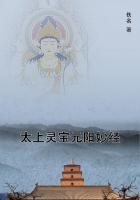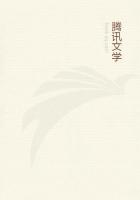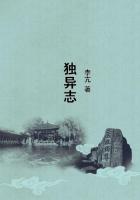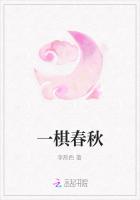These constant and secret researches into matters occult gave to Etienne's life the apparent somnolence of meditative genius. He would spend long days lying upon the shore, happy, a poet, all-unconscious of the fact. The sudden irruption of a gilded insect, the shimmering of the sun upon the ocean, the tremulous motion of the vast and limpid mirror of the waters, a shell, a crab, all was event and pleasure to that ingenuous young soul. And then to see his mother coming towards him, to hear from afar the rustle of her gown, to await her, to kiss her, to talk to her, to listen to her gave him such keen emotions that often a slight delay, a trifling fear would throw him into a violent fever. In him there was nought but soul, and in order that the weak, debilitated body should not be destroyed by the keen emotions of that soul, Etienne needed silence, caresses, peace in the landscape, and the love of a woman. For the time being, his mother gave him the love and the caresses; flowers and books entranced his solitude; his little kingdom of sand and shells, algae and verdure seemed to him a universe, ever fresh and new.
Etienne imbibed all the benefits of this physical and absolutely innocent life, this mental and moral life so poetically extended. Achild by form, a man in mind, he was equally angelic under either aspect. By his mother's influence his studies had removed his emotions to the region of ideas. The action of his life took place, therefore, in the moral world, far from the social world which would either have killed him or made him suffer. He lived by his soul and by his intellect. Laying hold of human thought by reading, he rose to thoughts that stirred in matter; he felt the thoughts of the air, he read the thoughts on the skies. Early he mounted that ethereal summit where alone he found the delicate nourishment that his soul needed;intoxicating food! which predestined him to sorrow whenever to these accumulated treasures should be added the riches of a passion rising suddenly in his heart.
If, at times, Jeanne de Saint-Savin dreaded that coming storm, he consoled herself with a thought which the otherwise sad vocation of her son put into her mind,--for the poor mother found no remedy for his sorrows except some lesser sorrow.
"He will be a cardinal," she thought; "he will live in the sentiment of Art, of which he will make himself the protector. He will love Art instead of loving a woman, and Art will not betray him."The pleasures of this tender motherhood were incessantly held in check by sad reflections, born of the strange position in which Etienne was placed. The brothers had passed the adolescent age without knowing each other, without so much as even suspecting their rival existence.
The duchess had long hoped for an opportunity, during the absence of her husband, to bind the two brothers to each other in some solemn scene by which she might enfold them both in her love. This hope, long cherished, had now faded. Far from wishing to bring about an intercourse between the brothers, she feared an encounter between them, even more than between the father and son. Maximilien, who believed in evil only, might have feared that Etienne would some day claim his rights, and, so fearing, might have flung him into the sea with a stone around his neck. No son had ever less respect for a mother than he. As soon as he could reason he had seen the low esteem in which the duke held his wife. If the old man still retained some forms of decency in his manners to the duchess, Maximilien, unrestrained by his father, caused his mother many a grief.
Consequently, Bertrand was incessantly on the watch to prevent Maximilien from seeing Etienne, whose existence was carefully concealed. All the attendants of the castle cordially hated the Marquis de Saint-Sever (the name and title borne by the younger brother), and those who knew of the existence of the elder looked upon him as an avenger whom God was holding in reserve.
Etienne's future was therefore doubtful; he might even be persecuted by his own brother! The poor duchess had no relations to whom she could confide the life and interests of her cherished child. Would he not blame her when in his violet robes he longed to be a father as she had been a mother? These thoughts, and her melancholy life so full of secret sorrows were like a mortal illness kept at bay for a time by remedies. Her heart needed the wisest management, and those about her were cruelly inexpert in gentleness. What mother's heart would not have been torn at the sight of her eldest son, a man of mind and soul in whom a noble genius made itself felt, deprived of his rights, while the younger, hard and brutal, without talent, even military talent, was chosen to wear the ducal coronet and perpetuate the family? The house of Herouville was discarding its own glory. Incapable of anger the gentle Jeanne de Saint-Savin could only bless and weep, but often she raised her eyes to heaven, asking it to account for this singular doom. Those eyes filled with tears when she thought that at her death her cherished child would be wholly orphaned and left exposed to the brutalities of a brother without faith or conscience.
Such emotions repressed, a first love unforgotten, so many sorrows ignored and hidden within her,--for she kept her keenest sufferings from her cherished child,--her joys embittered, her griefs unrelieved, all these shocks had weakened the springs of life and were developing in her system a slow consumption which day by day was gathering greater force. A last blow hastened it. She tried to warn the duke as to the results of Maximilien's education, and was repulsed; she saw that she could give no remedy to the shocking seeds which were germinating in the soul of her second child. From this moment began a period of decline which soon became so visible as to bring about the appointment of Beauvouloir to the post of physician to the house of Herouville and the government of Normandy.














